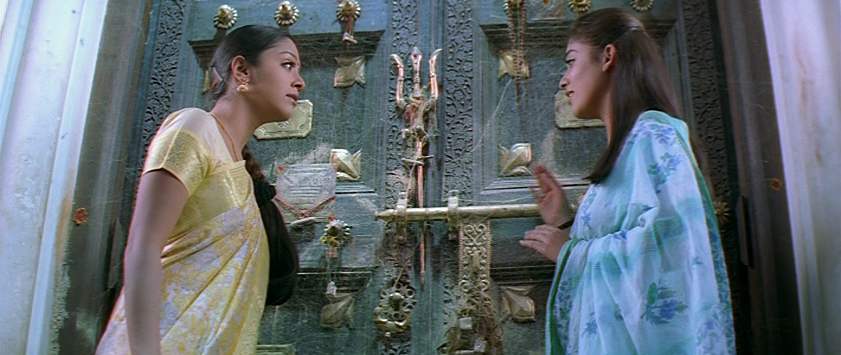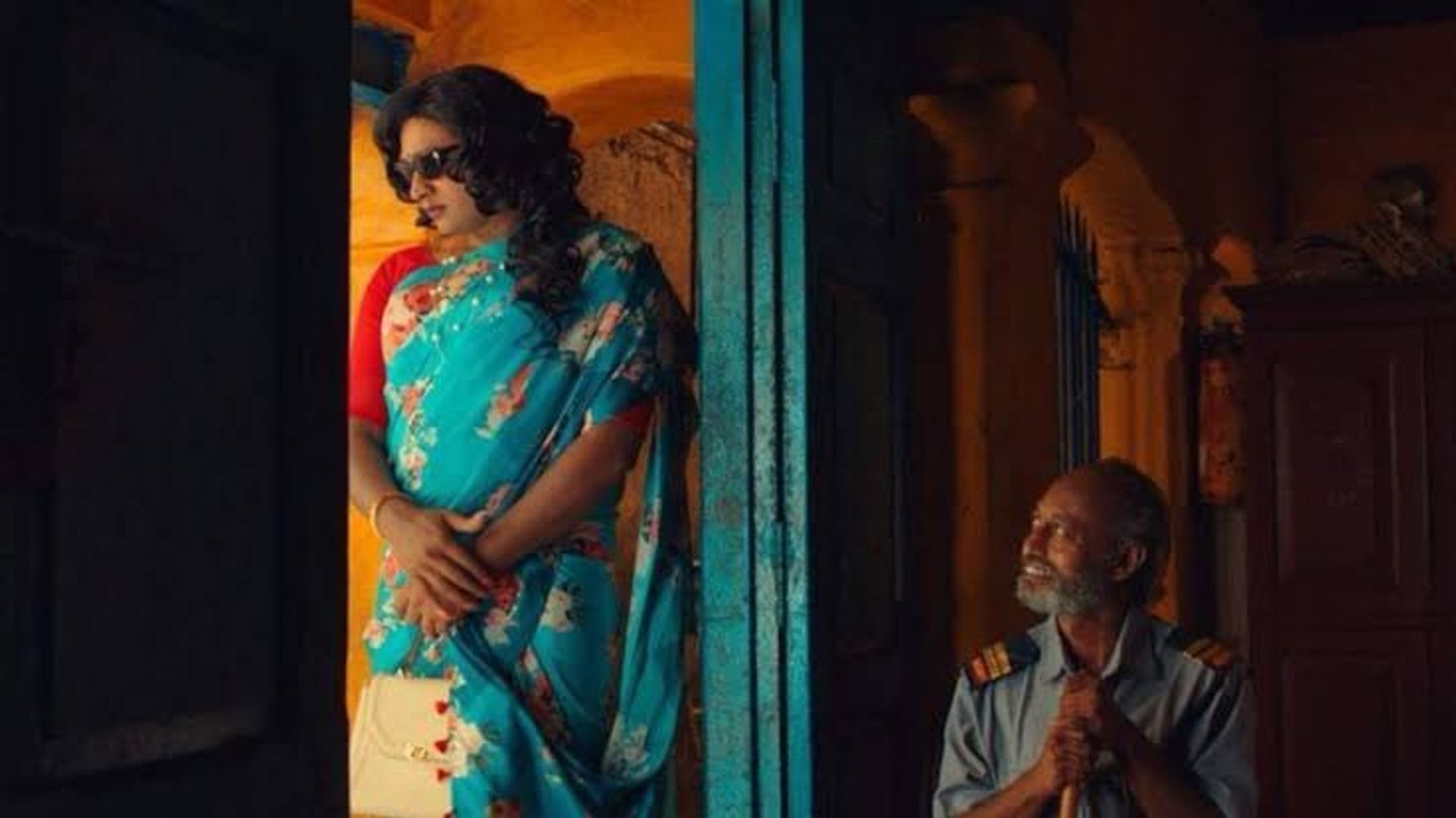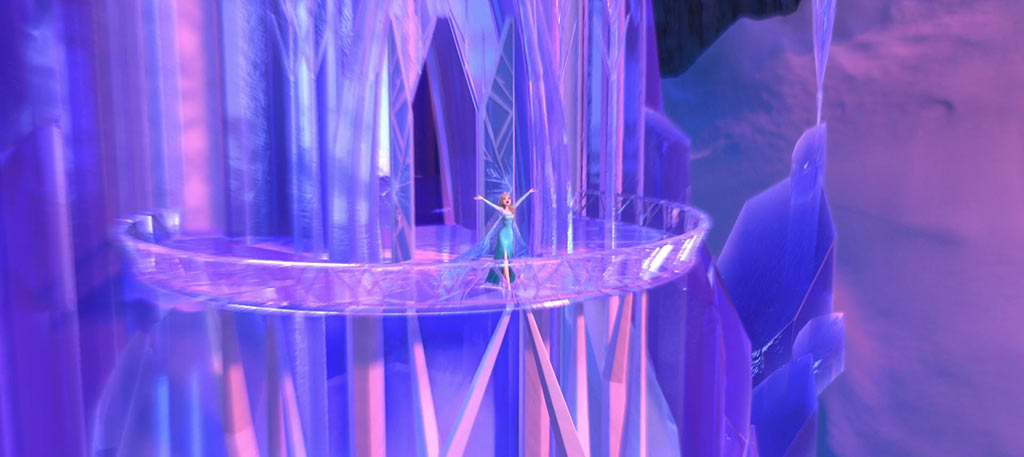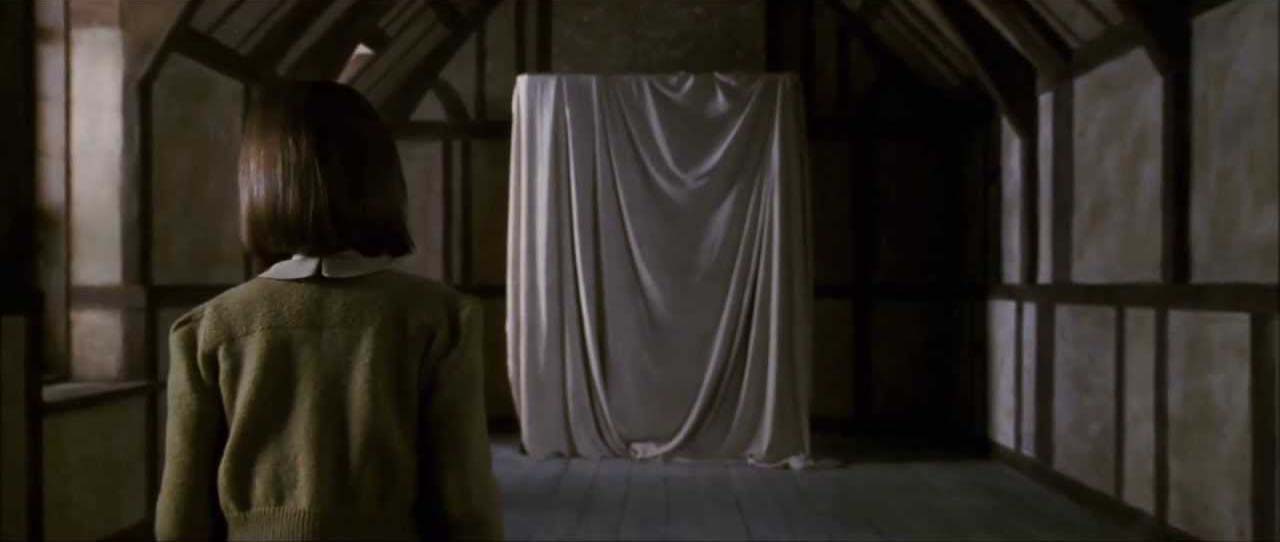Open Sesame
In cinema, as in life, doors have come to mean different things – they are the shields that confine us and protect us; and the gateways that lead us to enchanting journeys
Godhashri Srinivasan
You have the hard, heavy doors of old houses with beams crossing right through the middle. Within these doors is the family of older times, tight-knit, with solid relationships. You have the tall, temple-like doors of mansions and castles. When you exit these doors to the tune of sad melancholic music, you’re usually disgraced, your name sullied. In pop culture, doors are the things distraught characters slam before taking a drastic decision. Then, these doors are shouldered open by the saviours.
In another instance, doors embody temptation and hold secrets. In P. Vasu’s Chandramukhi, a benchmark film in Tamil horror-comedy, a heavy wooden door reinforced with exorcised charms becomes the symbol of fear and mystery. It is the door to the forbidden room that Jyotika redecorates, the door to a different personality.

Super Deluxe is a story about Shilpa, a transgender woman who had run away from home. When she returns, her family is shocked to see her as a woman, but Rasukkutty, her son still loves her. When she faces humiliation and assault at the hands of unfeeling people back home, she plans to run away again. But when Rasukkutty learns of her plan, he gets upset and slams the door on her face. In a pivotal scene in the climax of the film, Rasukkutty confronts Shilpa about her abandoning him as a baby, and her plans to abandon him again. Tearfully, Shilpa promises to stay by his side and walks in through the door – suddenly gaining the strength to brave social stigma to be with her family. The door becomes her portal to acceptance, courage and whole new world.

Although much different in context and audience, in another film, in another realm, doors imbibe the similar notions. Frozen – the story of two sisters in a fictional kingdom – is one of knocking and disappointments. Anna and Elsa, living in two different worlds, are separated by a door that Anna constantly tries to open and Elsa resolutely keeps shut. Anna sings that ‘love is an open door’, but in iconic song, when Elsa accepts her powers and decides to ‘let it go’, she still slams a door to our faces, essentially locking herself in. But by the end of the film, after a heart-warming journey (literally), she promises Anna that the castle doors will never be shut again.

Along the same thread, in The Chronicles of Narnia, the cupboard becomes the doorway to an entirely different world; Alice in Wonderland uses doors – of all sizes – to transition into markedly stranger landscapes; The Matrix uses the door to warn Ned about the choice he makes; and for Maria in The Sound of Music, when the lord closes a door, somewhere he opens a window – and she does have her fair share of doors closed on her. Doors are portals, secrets, walls, and protectors in films, just as in life. Opening a door means a lot of things – the entry into a new world, bravery, adventure, hope and change. Closing it also means a lot of things – confessions, violence, estrangements or lust (erm) love. So, what do doors mean to you?

